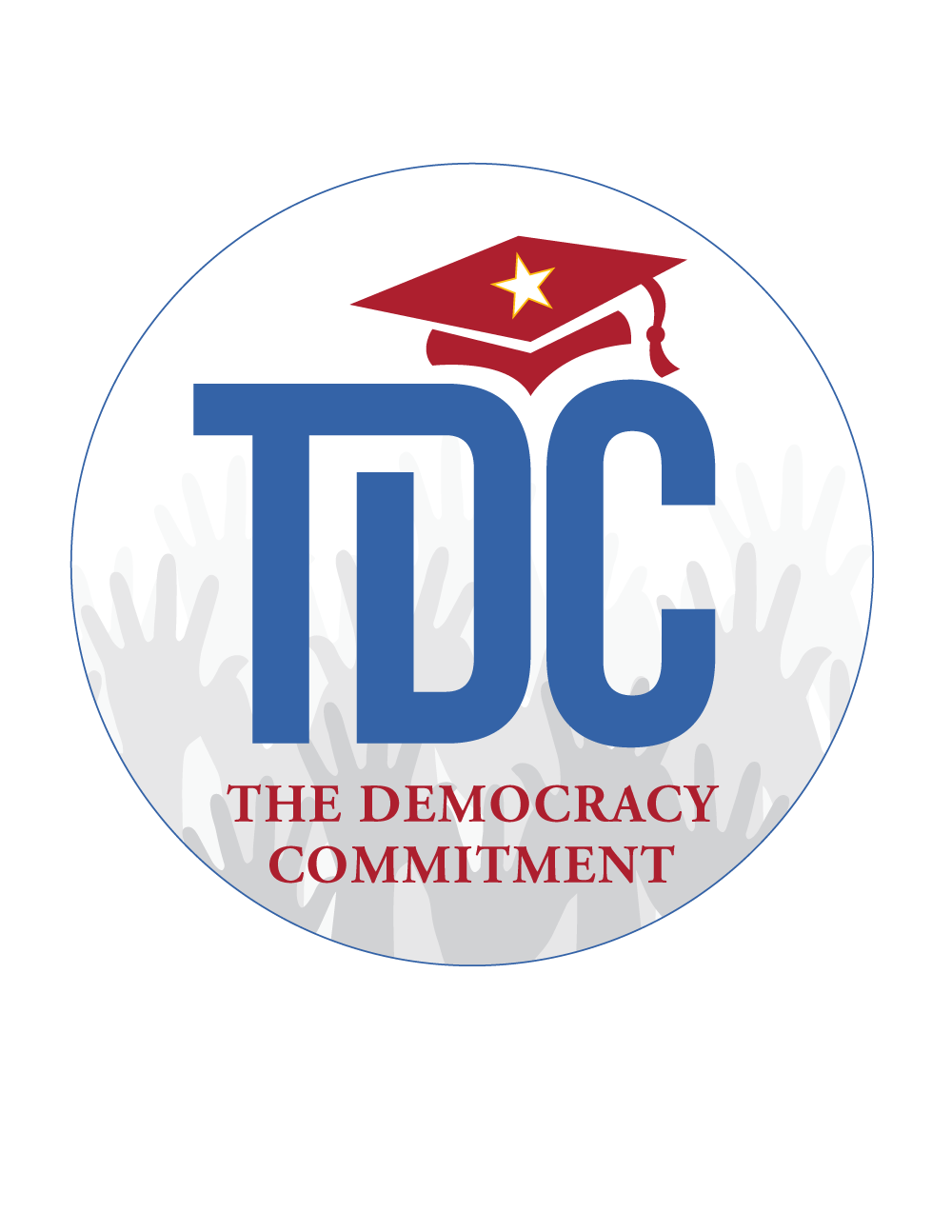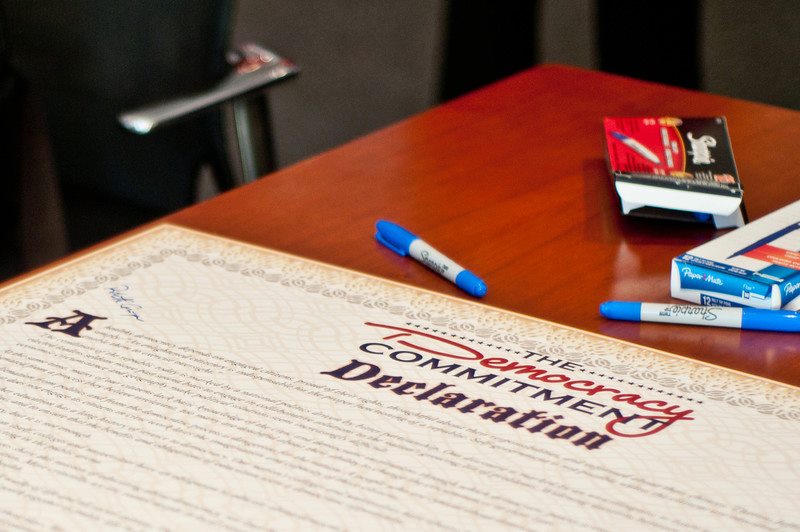On Monday, October 30th 2017, Mount Wachusett Community College hosted a deliberative dialogue event titled “White Privilege? Understanding Systems of Power” through the Tea Time Speaker Series. The dialogue pertained to the concept of white privilege, whether privilege exists, and how privilege is thought to influence the lives of the students, staff, faculty, and community members of MWCC.
Keynote speaker, Shelley Errington Nicholson, Director of MWCC’s Senator Stephen M. Brewer Center for Civic Learning and Community Engagement and member of TDC’s Campus Coordinator Advisory Council, made a point to acknowledge that “This is a challenging topic. This is not supposed to be easy to talk about.”
“I get privilege in society. I do,” Nicholson continued. “I get the benefit of the doubt because my skin is white… I didn’t earn that privilege, I didn’t ask for that privilege, but I need to acknowledge it, and I need to figure out how to use it for good and not evil.”
Immediately following Nicholson’s remarks, dialogue groups of 6 to 8 people were assembled in which participants were asked to contemplate and reflect on the notion of white privilege in modern society.
When asked as to why this topic was so important and relevant to community college students, Tea Time Speaker Series organizer, Sharmese Gunn, stressed that “the community college student is inherently diverse; [therefore], it is imperative to have open dialogues and conversations pertaining to diverse issues, such as white privilege.”
To close out the deliberative dialogue event, students of MWCC’s ALANA club, which supports the holistic development and achievements of ALANA (Asian, Latino(a), African American, and Native American) and Bi/Multiracial students, read an excerpt from Peggy McIntosh’s “White Privilege: Unpacking the Invisible Knapsack.” The excerpt contained statements, or “conditions” that are typically true for white people, but often untrue for people of color in our society.
The student speakers are pictured below as follows from left to right: Mariangelie Maldonado, Angely Morales, Rachel DeOliveira, Mia Arroyo, Laura Urdaneta, Monica Cayenne-Robinson, Julie Aguiar, Nathaniel Martinez, and Tracy Nguyen.
A transcript of their recitation may be read below:
- Mariangelie: “If I should need to move, I can be pretty sure of renting or purchasing housing in an area which I can afford and in which I would want to live.”
- Angely: “I can, if I wish, arrange to be in the company of people of my race most of the time.”
- Rachel: “I can go shopping alone most of the time, pretty well assured that I will not be followed or harassed.”
- Mia: “I can turn on the television or open to the front page of the paper and see people of my race widely represented.”
- Laura: “I can go into a music shop and count on finding the music of my race represented, into a supermarket and find the staple foods which fi t with my cultural traditions, into a hairdresser’s shop and find someone who can cut my hair.”
- Monica: “Whether I use checks, credit cards or cash, I can count on my skin color not to work against the appearance of financial reliability.”
- Julie: “I can do well in a challenging situation without being called a credit to my race.”
- Nathaniel: “I can criticize our government and talk about how much I fear its policies and behavior without being seen as a cultural outsider.”
- Tracy: “I can be pretty sure that if I ask to talk to the “person in charge”, I will be facing a person of my race.”
- Tracy: “If a traffic cop pulls me over or if the IRS audits my tax return, I can be sure I haven’t been singled out because of my race.”
- Nathaniel: “I can easily find academic courses and institutions which give attention only to people of my race.”
- Julie: “I will feel welcomed and “normal” in the usual walks of public life, institutional and social.”
- Monica: “I do not have to educate my children to be aware of systemic racism for their own daily physical protection.”
- Laura: “I can worry about racism without being seen as self-interested or self-seeking.”
- Mia: “I can take a job with an affirmative action employer without having my co-workers on the job suspect that I got it because of my race.”
- Rachel: “I can be late to a meeting without having the lateness reflect on my race.”
- Angely: “I can easily buy posters, post-cards, picture books, greeting cards, dolls, toys and children’s magazines featuring people of my race.”
- Mariangelie: “I can swear, or dress in second hand clothes, or not answer letters, without having people attribute these choices to the bad morals, the poverty or the illiteracy of my race.”
The Tea Time Speaker Series holds events that inspire conversation within the college and greater community on social and cultural issues and awareness. The next Tea-Time Speaker Series event will be held at MWCC on Monday, February 26th from 12:00 PM – 2:00 PM regarding the celebration of Black History Month.
-Eden Shaveet, MA-Based Regional Intern, TDC


